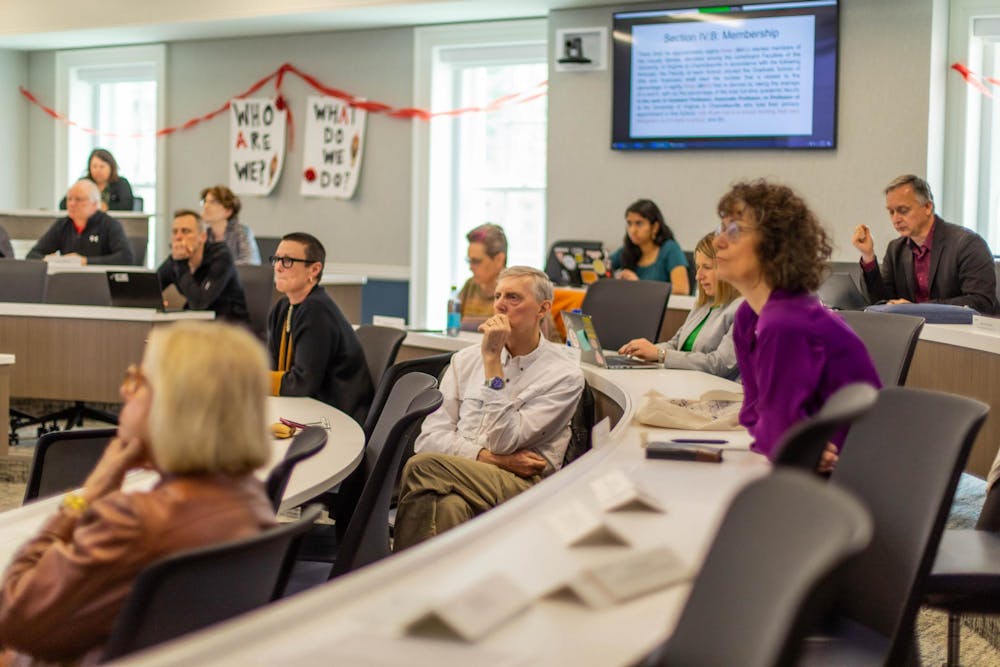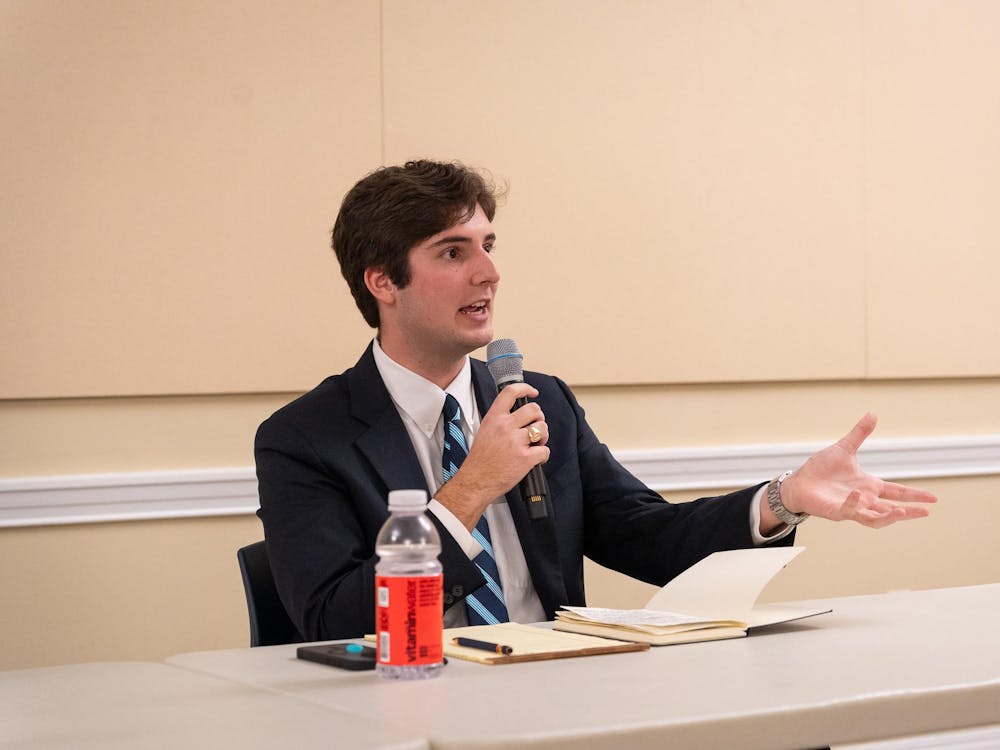As the Board of Visitors concludes its year-long cycle, the members will welcome a new faculty representative at their next regularly scheduled meeting in September — a non-voting, advisory position historically served by the prior year’s chair of the Faculty Senate.
Made up of elected faculty members from all of the University’s undergraduate and graduate schools, the University’s Faculty Senate serves as one of many pieces in the University’s self-governance system, working to advocate for the needs and concerns of faculty. The Cavalier Daily spoke with the current, former and future chairs of the Faculty Senate about the role they play in University decisions and the community.
The Senate — comprised of University professors and research faculty who do not serve administrative roles — mostly weighs in as advisors, advocating for academic and faculty-supported policies. Senators are either elected or appointed by their respective schools and serve as liaisons between their departments and the greater University administrative body. The Senate is not an enforcement agency or legislative leader but works to make an impact throughout the University.
James Lambert, current chair of the Faculty Senate and Engineering professor, highlighted their main goal of preserving academic integrity.
“The Senate is a steward of academic freedoms and values,” Lambert said. “Senators want to help distinguish U.Va. as a leader among its national and global peers in arts, sciences, law, medicine, business, architecture, policy, etc.”
The Senate is also able to represent the faculty perspective to legislative bodies through positions such as the faculty representative to the Board of Visitors. Michael Kennedy, former Faculty Senate chair and professor in the School of Education and Human Development, served this past year in the position. His term will end June 30 and he expressed gratitude for the opportunity to serve in this role and explained what it really meant.
“Although the faculty representative is non-voting, the person can be very influential by forming relationships with the Governor-appointed members, offering them advice, serving on committees and participating in all aspects of their meetings,” Kennedy said.
Assoc. Commerce Prof. Jeri Seidman, senator from the McIntire School of Commerce and Chair-elect for the 2025-2026 academic year, spoke on the larger role the Senate plays in the University community. She mentioned the attempted removal of former University President Teresa Sullivan in 2012 by the Board of Visitors — a decision the Senate publicly opposed and which was eventually overturned. However, Seidman noted that beyond times of extreme change, the Senate aims to play a role in the day-to-day of faculty as well.
“Some faculty think of the Senate as only having a role in times of chaos,” Seidman said. “However, I think over the past couple of years, we’ve been able to bring a number of issues to the administration before they would have otherwise gotten their attention.”
Seidman also emphasized the ability of the Senate to address any concerns faculty may have through its connections across the University.
“I hope more faculty begin to see us in this role and bring concerns and suggestions to us earlier,” Seidman said. “By its nature, the Senate has a reach into every school … we [do] serve as a governance backstop in times of chaos, but we are here all the other times as well. I find advancing these concerns and suggestions to be very rewarding and think many other Senators do as well.”
There are seven different committees within the Senate that focus on distinct issues — the Faculty Grievance Committee, Academic Affairs Committee, Diversity and Inclusion Committee, Faculty Recruitment, Retention, Retirement, & Welfare Committee, Finance Committee, Policy Committee and the Research, Teaching and Scholarship Committee.
During the fall semester, the Senate brought a proposal to the Office of the Executive Vice President and Provost which aimed to reverse a 2017 decision which required faculty to achieve promotion in order to receive employment commitments — protections against arbitrary termination — from the University. After the Senate passes a proposal, it moves to the Provost’s office for review.
Another recent resolution is the Resolution in Support of University Presidents passed in late April, in which the Senate encouraged University President Jim Ryan to work alongside other institutions to uphold the values of academic institutions in light of increased political pressure and funding challenges from the federal government. This resolution followed Ryan’s decision to sign a letter condemning President Donald Trump’s recent federal funding cuts and pressure on international students.
At times, the Senate has expressed disagreement with decisions of the Board — this spring, the Senate passed a Resolution on External Challenges to Faculty Roles and Responsibilities that served as a basis for their Resolution in Defense of Academic Freedom, Institutional Integrity, and the Principles of Diversity, Equity and Inclusion, passed in March. This resolution responded to the Board’s decision to dissolve the University’s Office of Diversity, Equity and Inclusion March 7 — in response, the Senate voiced support for the place of DEI initiatives at the University.
Seidman noted the work the Senate will have to do in the current political climate and called for continual collaboration with administrators and Board members to address national issues.
“We will be ready to work with the administration and the [Board of Visitors] to navigate the various governmental actions that are having significant effects on universities. It’s critical that during this turbulent time, the voice of the faculty is heard by these decision makers.”







